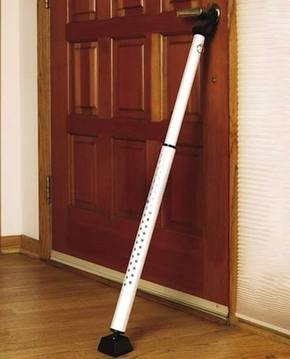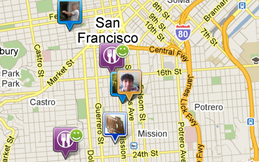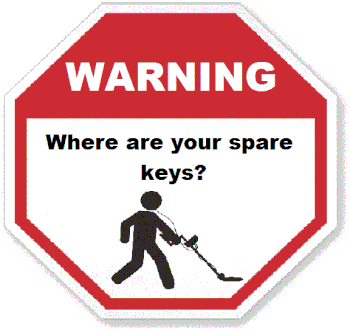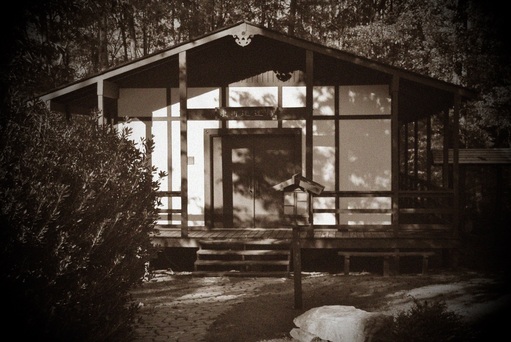Safety Tips For Home, Travel And Social Media
On this page, you will find simple safety and security tips for your home and family. These are exerts from lessons I often discuss in my teaching. However, you do not have to be someone who studies Budo to be able to utilize the ideas on this page. You will find that several of the tips will deal with internet safety and if you pay close attention, you will eventually realize that they tie directly into the ones dealing with home intruders.
Please feel free to pass these around to your friends and family. Enjoy these tips and safety ideas, hopefully they will inspire you to rethink some of your home security measures, how you and your family travel, view safety and what you share on social media. Also please check back from time to time as I update and add more tips.
Please feel free to pass these around to your friends and family. Enjoy these tips and safety ideas, hopefully they will inspire you to rethink some of your home security measures, how you and your family travel, view safety and what you share on social media. Also please check back from time to time as I update and add more tips.
Home Security Tips
Security Bar

This first tip is an inexpensive extra measure of security
for your home especially if you are on a budget. Simply place an adjustable
security bar on all of your outside doors. These are simple, quick to install
and require no modifications to your home. While
your home alone during the day or just before you go to bed at night, slide it
under the doorknob, snug it up with your foot and you're done. It is just as
simple to remove.
What this tip does is give you more response time. Many of the home break-ins now occur during the day just after a friendly knock at the door. Unfortunately, not answering the door just does not work anymore. So, what does this mean? For those of you who are at home all day and do not answer the door it does not mean they will just go away. The new trend is that if there is no answer, they kick the in the door, come in, and take what they want. They think there is no one home, now what do you do? What the bar will do for you is slow them down giving you more time to get to a safe place (get your weapon if you have one) and call 911. You can even keep one in the room where you go and hide to further slow them down. Every extra moment counts.
In the event the break-in happens at 3:00 am in the morning and you and your family are in bed sound asleep. The noise and effort made by someone trying to kick past the bar will hopefully wake you, give you more time to gather your faculties and respond to the situation. Being startled awake can leave one confused for a few moments. In a situation like this a few extra moments could mean all the difference in the world.
Please keep in mind that every situation is different and should be treated as such. However, as a general rule of thumb many people who break-in during the day usually do so to avoid people, confrontation and have no premeditated intention of harming someone. They are usually motivated by money and or their next fix. This type of person is more interested in grabbing what valuables they can carry and getting out as quickly as possible. This is not to say they would not be willing to so I would treat an encounter as if your life depended on it. This kind of person would is more likely to run than stand and engage someone. It may only become aggressive if they didn’t realize someone was there, became startled themselves or have become cornered and have nowhere to run.
Those who would break-in late at night when you are most likely going to be home are a completely different kind of person. They will most likely not care if you are there or not, be much more dangerous and there is a good chance it wasn't your possessions they were after in the first place. I would consider this type of person a predator and a much more unstable kind of person. Their motivations can be very different for breaking into your home. Even with this information, my advice would be when face with any intruder to treat them all the same, as you never know whom you are dealing with. Armed with this new information and a simple safety device you can increase your odds and response time making your home that much safer.
The bars that I suggest are made by Master Lock and can be purchased at many big box stores like Lowes or Home Depot for around $20.00. It has also been designed for use on sliding glass doors as well with one simple adjustment. This is even something you could travel with if you wanted.
What this tip does is give you more response time. Many of the home break-ins now occur during the day just after a friendly knock at the door. Unfortunately, not answering the door just does not work anymore. So, what does this mean? For those of you who are at home all day and do not answer the door it does not mean they will just go away. The new trend is that if there is no answer, they kick the in the door, come in, and take what they want. They think there is no one home, now what do you do? What the bar will do for you is slow them down giving you more time to get to a safe place (get your weapon if you have one) and call 911. You can even keep one in the room where you go and hide to further slow them down. Every extra moment counts.
In the event the break-in happens at 3:00 am in the morning and you and your family are in bed sound asleep. The noise and effort made by someone trying to kick past the bar will hopefully wake you, give you more time to gather your faculties and respond to the situation. Being startled awake can leave one confused for a few moments. In a situation like this a few extra moments could mean all the difference in the world.
Please keep in mind that every situation is different and should be treated as such. However, as a general rule of thumb many people who break-in during the day usually do so to avoid people, confrontation and have no premeditated intention of harming someone. They are usually motivated by money and or their next fix. This type of person is more interested in grabbing what valuables they can carry and getting out as quickly as possible. This is not to say they would not be willing to so I would treat an encounter as if your life depended on it. This kind of person would is more likely to run than stand and engage someone. It may only become aggressive if they didn’t realize someone was there, became startled themselves or have become cornered and have nowhere to run.
Those who would break-in late at night when you are most likely going to be home are a completely different kind of person. They will most likely not care if you are there or not, be much more dangerous and there is a good chance it wasn't your possessions they were after in the first place. I would consider this type of person a predator and a much more unstable kind of person. Their motivations can be very different for breaking into your home. Even with this information, my advice would be when face with any intruder to treat them all the same, as you never know whom you are dealing with. Armed with this new information and a simple safety device you can increase your odds and response time making your home that much safer.
The bars that I suggest are made by Master Lock and can be purchased at many big box stores like Lowes or Home Depot for around $20.00. It has also been designed for use on sliding glass doors as well with one simple adjustment. This is even something you could travel with if you wanted.
Safety Tips For Social Media
With all of the social media, especially Facebook people have gotten more
and more comfortable with sharing personal information about themselves, their
lifestyle, possessions, finances, and movement. The ability to gain information
about others has become disturbingly easy. This has been accomplished by making
it fun and what has become normal. What is the harm everyone else is doing it,
right? Most see it as acceptable and feel comfortable revealing everything
about his or herself to anyone with a computer. You may think what you share,
post and tweet is perfectly harmless however; you may be sharing much more
about yourself and personal life than you realize. Unfortunately, like
everything else there is a dark side and what you are doing can become
dangerous. You will find that most of the tips are
more effective when used in conjunction with each other.
Interestingly enough many of the Facebook safety tips you will see on this page were ones I actually posted to the dojo Facebook page at one point. I later went back looking for one of the post to send to someone and found that they all had been removed from my page, I'm assuming by Facebook. That is also another reason I decided to create this page.
Interestingly enough many of the Facebook safety tips you will see on this page were ones I actually posted to the dojo Facebook page at one point. I later went back looking for one of the post to send to someone and found that they all had been removed from my page, I'm assuming by Facebook. That is also another reason I decided to create this page.
Posting Your Location

Here is a little tip for those of you who like to post your whereabouts on Facebook. I know many people who like to post vacation pictures while they are still on vacation. Picture of scenic views, toes in the sand and cool places visited. If you haven’t posted it already it gives someone a good idea of where you are as well as how far away you are. I have also seen on several occasions where people have posted the day they were leaving and what time and day they expect to be home. This could be a costly practice and in my opinion just not a good idea at all. This not only tell everyone that your home is empty but it will be a while before your return. I read a news article not too long ago where a high school boy posted his family faction schedule. When the family returned, they found their home had been trashed. It was reported that local kids had found out on Facebook that the family would be gone for a week according to a post that was made. Kids broke-in, vandalized the place and party until they knew the family would return.
I also realize many of you like to support places they visit or do business with; I get it. Unfortunately, this too can come at a price. With all of the break-ins we have been seeing in all of our neighborhoods don't you think telling everyone that you're not at home might not be the wisest thing to do. If someone has targeted your home (maybe one of your Facebook" friends") and you have posted that you have just sat down for a meal at the Roadhouse steak house. It wouldn't be very hard to calculate and determine how long based on the average length of a meal plus time and distance between the restaurant and your house as to how much time someone would have to get in and get out of your home. This would be even easier to determine if you have posted that you have just sat down at 5:35 at the movie theater for a 1 ½ hour long movie. Remember Facebook time stamps each post along with a map marking your location.
My simple suggestion would be that if you must make these kinds of posts simply wait until later when you are home; enjoy your trip, movie, or meal, posting this stuff can wait. I honestly don’t think anyone really cares when you actually sat down in the restaurant or how relaxed you are on the beach. Well, no one except that special someone who was really looking forward to taking that new big screen TV or gun you that have been posting photos of all over Facebook. Also, keep in mind someone can actually create their own profile and schedule of your movements and habits based on what you post. Example: Saturday night is movie night at your home and like clockwork according to your post, the whole gang piles into the car and heads to Cherrydale theater. You always go the 7:30 movie and eat afterwards at KFC even though you got your usual large popcorn and Goobers. I would know this because you for some reason tag yourself at each stop.
Spare Key Warning and Tip

This story came from one of my students who just recently returned home from vacation. His family was gone for about a month or two for summer vacation abroad however, the time away from home really does not matter if your home was chosen randomly. Once home like many of us do who have security cameras they reviewed the footage of when they were gone to see if there had been any activity while they were gone. What they found was very interesting. They had captured video of a suspicious man who came into their yard with a metal detector. This man then started sweeping all around the front porch and the area around the steps and bushes with his metal detector looking for something. In this case he found nothi8ng and then quickly left as fast as he came. Can you guess what he was looking for? My guess he was looking for their spare door keys.
Nobody likes to getting locked-out of the house and many of us keep a spare key for just that occasion. This is a good practice but we have to be more creative in our hiding of the key. Under the mat, the plant by the door, in the fake plastic rock or garden gnome at the bottom of the steps or on top of the door seal are all lazy places that we all know and have used before. These are just not good enough anymore and you have to give this person credit for his quick solution for finding our keys looking in those very spots.
HIDEING TIP
This is what I have been doing for a while and have suggested to my students. If you are going to hide a set of extra keys somewhere around your house avoid the obvious places I mentioned before. Hide your keys somewhere in your yard some distance away from your door where none one would ever think to look. Hide them in a place that is not easily visible to others. Do this so when you go to collect them no one can see your hiding place. Have fun and be creative in how you conceal them. There are some very cool and fun ways to do this. Use what is already there and create a container that blends right in. Make sure it can be sealed from the weather so your keys don’t rust. In addition and most importantly put them back as soon as you are in so the will be there the next time you need them. If you are familiar with geo cashing there are tones of cool ideas for hiding things on pinterest. Don't be lazy and let this guy find your keys, do a little research, find a good spot, and have some fun finding a better way to hide your spare keys.
Nobody likes to getting locked-out of the house and many of us keep a spare key for just that occasion. This is a good practice but we have to be more creative in our hiding of the key. Under the mat, the plant by the door, in the fake plastic rock or garden gnome at the bottom of the steps or on top of the door seal are all lazy places that we all know and have used before. These are just not good enough anymore and you have to give this person credit for his quick solution for finding our keys looking in those very spots.
HIDEING TIP
This is what I have been doing for a while and have suggested to my students. If you are going to hide a set of extra keys somewhere around your house avoid the obvious places I mentioned before. Hide your keys somewhere in your yard some distance away from your door where none one would ever think to look. Hide them in a place that is not easily visible to others. Do this so when you go to collect them no one can see your hiding place. Have fun and be creative in how you conceal them. There are some very cool and fun ways to do this. Use what is already there and create a container that blends right in. Make sure it can be sealed from the weather so your keys don’t rust. In addition and most importantly put them back as soon as you are in so the will be there the next time you need them. If you are familiar with geo cashing there are tones of cool ideas for hiding things on pinterest. Don't be lazy and let this guy find your keys, do a little research, find a good spot, and have some fun finding a better way to hide your spare keys.
Safety Tips for Travel
Get Home Bag Suggestions
A Get Home Bag is often referred to as the little brother of the "Bug Out" bag commonly associated with the prepper community. If you are not familiar with the term "Prepper" or for whatever reason you have a negative opinion about prepping and the people who do it, I will do my best to explain the idea a little better. People who say they prep or are preppers are considered by many as crazy people who are preparing for the end of civilization as we know it based on several possible doomsday events that have been predicted. I will admit I have met some extremist who in my opinion have given up the life they have now for the horrible life they feel is coming. By extremist, I mean those that all they do is think about prepping and nothing else; no fun, no vacations, no life - just worrying and stockpiling, waiting for the end. Then I have met those who enjoy life but know there is a potential for something to happen and prepare for the possibility. The stigma associated with prepping is largely due to the lack of understanding of the term prepping. You may even be a prepper and not know it. Keep in mind there are many ways to prep and many kinds of people who prep. Not all preppers dig bunkers in the back yard and stockpile beans, toilet paper, and ammo. It does not have to be a doomsday event for you to prepare yourself for an emergency. Everyday people can and do prepare for common everyday emergencies.
If you are someone who likes to look ahead and prepare for common emergency situations then you could be defined as a prepper. Do you have a set of jumper cables, road flares, and/or a spare tire in your vehicle just in case your battery goes dead or you have a flat? Do you carry a portable cell phone charger, just in case? Do you have a burglar alarm, security cameras, and/or a fire alarm system in your home? Do you go to the store and pick up a few extra things because you heard on the news that bad weather is expected? Do you have a generator in the garage because your neighborhood is notorious for power outages? Do you tuck back a few extra dollars throughout the year so you will have a little extra spending money when vacation season gets here? When you get in your car, you put on your seat-belt in case there is an accident not because you know you are going to be in an accident. You may have found this article because you have decided to look into martial arts training to be better prepared if someone tried to harm you or someone in your family. If you do, or have done, any of these things you are prepping - it is as simple as that. One of the sayings that I teach my students is that we prepare for that moment that we prey never comes. Because of movies, end of the world predictions, and big business, the term “prepping” has taken on a new life and meaning for many. However, being prepared for a potential emergency just makes good common sense. Now that you have a better understanding of the term prepping you may not feel it is such a foreign idea.
A get home bag is essentially a small bag, typically a backpack used to carry essential items to help you be prepared for any situation in which your car breaks down, you have had an accident, or any other reason that you have to abandon your vehicle and leave out on foot. This is something that you should keep in your primary vehicle. Pack your bag with basic, not wanted, items to keep it light. Your skills and the area that you will be traveling and terrain should be taken into consideration when choosing the items for your get home bag. Some items on this list you may think you won't need until you actually do. Items in your bag should be regularly adjusted to fit the current climate and season. Always kept your supplies up to date and ready to go. Please keep in mind that these are just suggestions, you should customize your bag to the way you live your life.
- Batteries- these can be for any battery operated devices that you carry such as an extra cell phone battery or charger (Ex: pocket-size backup battery for cell phone)
- Water - a way to carry/collect and boil or purify it, or carry a purification straw
- Energy protein bars - keep preservation and shelf life of food items in mind. Moist foods, foods with candy or chocolate coatings do not store well especially in hot/humid conditions. Also foods high in sugar but low in protein are not always the best option.
- Road Map - these can help you find your way to safety and around obstacles. Paper road maps are necessary when your GPS/cell phone is inoperable. (Ex: many locations near large bodies of water or areas with large deposits of granite affect GPS)
- Signal mirror- Use this in the daytime to flash to get someone's attention
- Rain gear - poncho, small tarp you could use for shelter, a ballcap
- Extra clothing - extra shoes for walking (these wouldn’t actually need to be in your bag but with it. You wouldn’t want to have to walk several miles in dress shoes or high heels), thick wool socks to prevent blisters and to keep feet warm and dry in the winter or lighter weight socks for the summer, t-shirt, gloves, etc. Consider clothing dictated by the weather in the area you will be traveling at that time of year. Also, avoid all cotton clothing as this does not provide warmth.
- Fire - You will want several ways to make fire: matches, waterproof matches, lighter, magnesium striker, or some kind of tender such as cotton balls soaked in petroleum jelly, steel wool, lent from a dryer, etc.
- Multi tool - The name explains its use.
- Lighting - Led head lamp, flashlight, crank light, etc.
- Knife and/or folding saw - these can have many uses: Both straight and serrated edges are good to have and can be used for personal protection, cutting rope or wood, digging, freeing yourself or someone else (i.e. seat-belts, snags, etc.)
- Firearms- If you can legally carry a firearm this would also be a great addition to keep you safe while on the road or trail. However, it would be best carried on you not in the bag as it is for the purpose of self-defense
- Personal Hygiene supplies - a travel size toothbrush with toothpaste, hotel size soap, toilet paper, a tightly folded bandana, extra feminine items, etc.
- 550 Paracord - This cord has literally 1000′s of different life saving uses!
- First Aid - bandages, tweezers, medical tape, insect repellant, super glue, gauze pads, a small mirror, medications (Advil, aspirin, antacids, Benadryl, Neosporene, etc.), and medications/items specific for your particular health issues.
- Warmth - a compact solar blanket, hand/foot warmers, hat or wool stocking cap, gloves, etc.
- Small Emergency Radio – Some are hand cranked and require no batteries. You want to make sure that if you are buying an emergency radio you get one that will receive all hazard and weather alerts. This radio could be your only form of information. Two-way or portable ham radios can also be very useful as many will have a scanner feature.
- Notepad - this would be to leave a note, take directions, or make notes of progress (water proof ones can be found in hiking stores).
- Bandanna or dust mask - can be used to filter water, protect you from dust particles, or to wet down to keep from overheating.
- Extra pair of eyeglasses (if needed)
- Emergency contacts - handwritten / typed list of emergency contact numbers in the event your phone is inoperable. With the digital era we often rely on other’s phone numbers being at the touch of our fingers, instead of being memorizing.
- Reference Guides - compact guides to give you skills to deal with certain emergency survival situations dependent upon your geographical location.
Below are reminders of how any regular day can turn into a survival situation that could prevent / delay you from being able to return home:
1989 - Hurricane Hugo hit Myrtle Beach, SC
2011 – 911 attack in NY
2004 - Hurricane Ivan hit Florida
2005 - Hurricane Katrina hit the gulf coast
2012 - Hurricane Sandy hit New York
2013 - Tornado hit Moore, OK
2013 - "Blizzard" - a total of 2 inches of snow hit Atlanta & shut down the city & I-85
2014 - Tornado outbreak in NC, OK, Nebraska, FL, Illinois
2014 - Mudslide in Washington State
This website uses marketing and tracking technologies. Opting out of this will opt you out of all cookies, except for those needed to run the website. Note that some products may not work as well without tracking cookies.
Opt Out of Cookies

